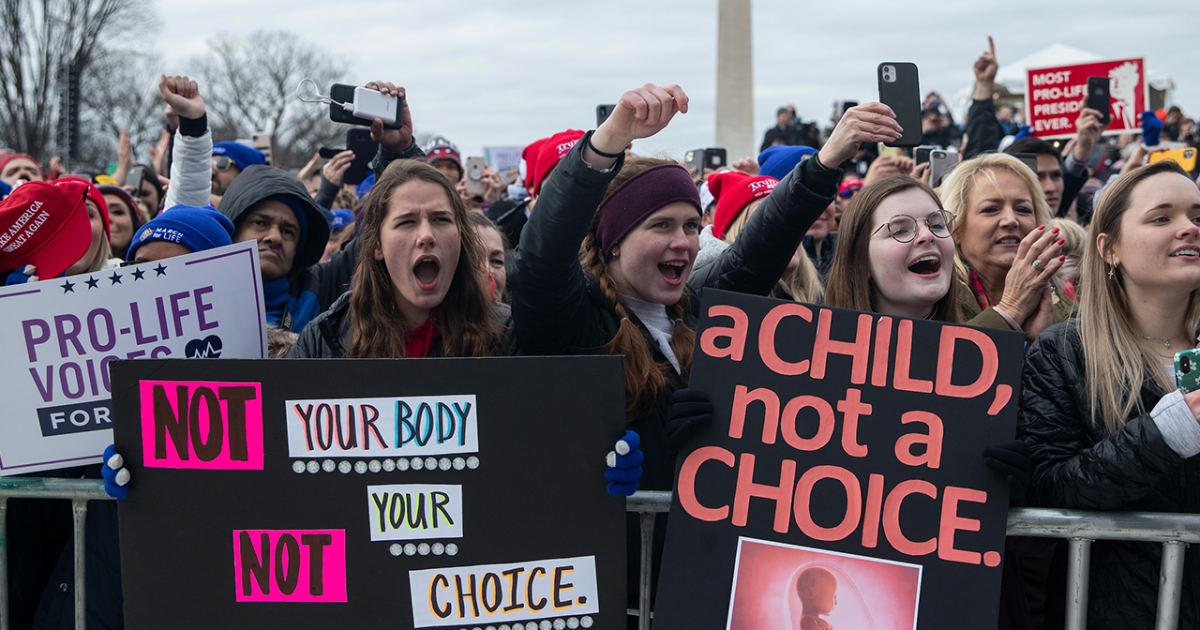

A proposal to have voters decide whether to add a provision the Pennsylvania Constitution to say it does not guarantee any rights relating to abortion or public funding of abortions passed the Legislature on Friday and could be on the ballot next spring.
The language was among five proposed Republican-written amendments that were approved by both the House and Senate after a pair of charged debates among state lawmakers who have promised their voters to fight for or against abortion rights.
“Do we want the people of the commonwealth to fund abortions — why are we so afraid to put this question before the people?” said Rep. Clint Owlett, of Tioga County, among many Republicans to focus on letting the voters decide.
Democrats said the measure was a step that will put GOP lawmakers closer to achieving what is, for most of them, a longstanding goal: to prohibit or severely limit access to abortion.
WHERE EVERY STATE STANDS ON ABORTION IN WAKE OF ROE BEING OVERTURNED
“It’s a pathway,” said Rep. Emily Kinkead, D-Allegheny, “and to say otherwise is a lie.”
The proposal still needs another round of passage in both chambers in the legislative session that starts in January, and supporters hope to get it before voters for a referendum during the 2023 spring primary.
The votes fell mostly along partisan lines, 28-22 in the Senate and 107-92 in the House.
The bill also contains proposed constitutional amendments to require voter ID, have gubernatorial candidates choose their own running mates, empower lawmakers to cancel regulations without facing a governor’s veto and establish election audits. Lawmakers voted them as a package, but voters would consider them individually.
The abortion provision drew the most attention by far during the two marathon debates Friday, conducted as lawmakers were holding final votes on the state’s annual budget bills.
“Women should have the right to their own bodies, full stop, full stop,” said Sen. Lindsey Williams, D-Allegheny. “If you don’t want to have an abortion, don’t have one, but don’t take away my right or the right of other women in this commonwealth to make that decision for herself.”
Sen. Joe Pittman, R-Indiana, recalled his experience nine years ago when his child was delivered stillborn, after which he and his wife had to name him and received birth and death certificates.
“So for me, my sincere belief is that I will stand and be a voice for the voiceless, I will stand to protect what I believe is unborn life, because that’s what I believe,” Pittman said.
In the lengthy House debate, Rep. Melissa Shusterman, D-Chester, called the proposal “extreme and extremely cruel to women.”
“This takes away individual liberties, a woman’s right to control her life,” Shusterman said. “My right to control my life, my sister’s right to control her life. And it allows for political and religious leaders to insert their radical, uninformed beliefs in the doctor’s office.”
The Republican nominee for governor in the November election, Franklin County Republican Sen. Doug Mastriano, argued for the voter ID requirement by listing other activities that require identification.
CLICK HERE TO READ MORE FROM THE WASHINGTON EXAMINER
“It’s really important in our constitutional republic that people have faith and trust in the election system and they have an equal share in the vote,” Mastriano said.
On the gubernatorial running mates question, Sen. Dave Argall, R-Schuylkill, said it would fix the sometimes dysfunctional relationship between the officials who run independently in primary elections.
“We’ve seen in this building governors and lieutenant governors that didn’t even talk to each other, let alone work with each other,” Argall said.
Legislative Republicans have increasingly been turning to the constitutional amendment process to get around the veto of Democratic Gov. Tom Wolf. It allows them to advance policy changes with a simple majority and makes them much harder to reverse.







